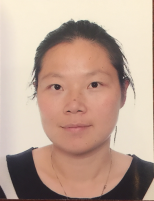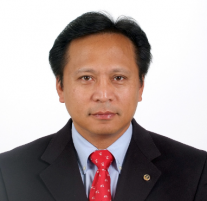Keynote Speakers
We are pleased to welcome the following keynote speakers for PACRIM’24.

Prof. Ekram Hossain, University of Manitoba, Canada
Title: Domain Generalization in Machine Learning Models for Wireless Communications: Concepts, Methods, and Open Challenges
Abstract: Data-driven machine learning (ML) is expected to be one of the key technologies to be used in next-generation wireless systems. A large body of research work apply ML techniques to solve problems in wireless communication networks. However, most of these applications rely on supervised learning which assumes that the source (training) and target (test) data are independent and identically distributed. This assumption is often violated in the real world due to domain or distribution shifts between the source and the target data. Thus, it is important to ensure that these algorithms generalize to out-of-distribution (OOD) data. In this context, domain generalization (DG) tackles the OOD related issues by learning models on different and distinct source domains/datasets with generalization capabilities to unseen new domains without additional finetuning. In this talk, I will present the basic concepts and methods of DG and their applications in selected wireless communication problems, and conclude with insights and open questions.
Bio: Ekram Hossain (Fellow, IEEE) is a Professor and the Associate Head (Graduate Studies) of the Department of Electrical and Computer Engineering, University of Manitoba, Canada. He is a Member (Class of 2016) of the College of the Royal Society of Canada. He is also a Fellow of the Canadian Academy of Engineering and the Engineering Institute of Canada. His current research interests include design, analysis, and optimization beyond 5G/6G cellular wireless networks. He was elevated to an IEEE fellow, for contributions to spectrum management and resource allocation in cognitive and cellular radio networks. He was listed as a Clarivate Analytics Highly Cited Researcher in Computer Science in 2017-2023. He has won several research awards, including the 2017 IEEE Communications Society Best Survey Paper Award and the 2011 IEEE Communications Society Fred Ellersick Prize Paper Award. He received the 2017 IEEE ComSoc TCGCC (Technical Committee on Green Communications and Computing) Distinguished Technical Achievement Recognition Award “for outstanding technical leadership and achievement in green wireless communications and networking”. He served as the Editor-in-Chief for the IEEE Press (2018–2021) and the IEEE Communications Surveys and Tutorials (2012–2016). He was a Distinguished Lecturer of the IEEE Communications Society and the IEEE Vehicular Technology Society. He served as the Director of Magazines (2020-2021) and the director of Online Content (2022-2023) for the IEEE Communications Society (2020–2021). He was an Elected Member of the Board of Governors of the IEEE Communications Society for the term 2018–2020.

Prof. Liuqing Yang, Hong Kong University of Science and Technology (Guangzhou)
Title: Advancing Wireless Channel Prediction: Physics Informed or Large Model Dominated?
Abstract: In the realm of wireless system design and optimization, the acquisition, tracking, and prediction of the wireless channel are crucial yet challenging tasks, particularly in dynamic environments. This presentation delves into our recent research that explores two distinct approaches for wireless channel recovery and prediction. On one end, we investigate the use of Multi-Modal Feature Fusion (MMFF), where various sensing devices perceive the physical environment to enhance channel understanding and improve the accuracy of channel prediction. On the other end, we explore the application of Large Language Models (LLMs) in wireless channel prediction. By leveraging the capabilities of LLMs, we harness their potential to predict channel behavior without attempting to explicitly address the physical environment. Through this presentation, we will outline the methodologies employed in each approach and discuss the results obtained. This comparison aims to highlight the strengths and limitations of using MMFF versus LLMs in wireless channel management.
Bio: Prof. Liuqing Yang received the Ph.D. degree from the University of Minnesota, Minneapolis, MN, USA, in 2004. She is a Fellow of IEEE and AAIA. Prof. Yang has been a faculty member with University of Florida, Colorado State University, and University of Minnesota, and is currently a Chair Professor with the Hong Kong University of Science and Technology (Guangzhou), where she serves as the Acting Director of the Low-Altitude Systems and Economy Research Institute (LASERi), and the Head of the Intelligent Transportation (INTR) Thrust. Her research interests include communications, sensing, and networked intelligence, subjects on which she has published more than 400 journal and conference papers, four book chapters, and five books. She is a recipient of the ONR YIP Award in 2007, the NSF CAREER Award in 2009, and multiple Best Paper Awards. Prof. Yang is an Executive Editorial Committee (EEC) Member of the IEEE Transactions on Wireless Communications. She has also served as the Editor-in-Chief of IET Communications, on the editorial board for an array of elite journals including IEEE Transactions on Signal Processing, IEEE Transactions on Communications, and the IEEE Transactions on Intelligent Transportation Systems, in various roles of IEEE ComSoc and IEEE ITSS, as well as in leadership roles for many conferences.

Prof. Z. Jane Wang, University of British Columbia, Canada
Title: 2D-Image Based Pose Estimation for Everything: Methods and Applications
Abstract: Keypoint detection, often related to various pose estimation and object detection problems, is an important learning topic with board applications in various fields, especially in biomedical areas. As 2D images are cost effective and easy to capture, keypoint detection using 2D images has been attracting increasing research interest. This talk gives a brief review of my group’s recent research efforts in exploring 2D-image based pose estimation, from both methodology and application aspects, by investigating several related learning tasks: 3D human pose estimation; hand pose estimation; pose estimation based assessments in Parkinson’s Disease; and keypoint based pose assessments using horse images. Particularly, while deep Learning offers promising solutions to pose estimation problems, a critical concern in real-world problems is the scarcity of annotated datasets. We propose innovative strategies (e.g., self-supervision, partial annotation, data synthesis) for training deep learning models without or reducing the need for explicit annotated data. The talk will conclude by brainstorming future research directions.
Bio: Z. Jane Wang received the B.Sc. degree from Tsinghua University in 1996 and the M.Sc. and Ph.D. degrees from the University of Connecticut in 2000 and 2002, respectively, all in electrical engineering. She has been Research Associate at the University of Maryland, College Park from 2002 to 2004. Since 2004, she has been with the ECE dept. at the University of British Columbia (UBC), Canada, and she is currently Professor. She is Fellow of IEEE and the Canadian Academy of Engineering (FCAE). Her research interests are in the broad areas of signal processing and machine learning, with current focuses on digital media security and biomedical data analytics. She has been key Organizing Committee Member for numerous IEEE conferences and workshops (e.g. Technical Chair or General Chair for IEEE ICIP 2020, 2025 and 2026). She has been Associate Editor for the IEEE TSP, SPL, TMM, TIFS, TBME, and SPM, and Editor-in-Chief for the IEEE Signal Processing letters.

Prof. Moe Z. Win, Massachusetts Institute of Technology (MIT), United States
Title: Quantum Nexus for Sensing, Communication, Control, and Computing
Abstract: Recent advancements in quantum information science are poised to unleash new sensing, communication, control, and computing (SC3) capabilities. Synergies in SC3 promise the development of next-generation networks with unprecedented performance. For instance, (i) control of statistical information facilitates ultra-precise quantum estimation, (ii) communication exploiting quantum phenomena empowers concealed telecomputation, and (iii) variational computing and collaborative metrology enable networked quantum sensing. Quantum Nexus unifies SC3 and provides key insights into the systematic design of quantum information technologies. Quantum Nexus has led to new theories and methodologies in quantum localization, quantum direct communication, remote entanglement establishment, optimal quantum control, and distributed quantum computation, among others. This talk will introduce Quantum Nexus for SC3 and highlight key areas of research.
Bio: Moe Win is the Robert R. Taylor Professor at the Massachusetts Institute of Technology (MIT) and the founding director of the Wireless Information and Network Sciences Laboratory. Prior to joining MIT, he was with AT&T Research Laboratories and the NASA Jet Propulsion Laboratory. His research encompasses theoretical foundation, algorithm design, and network experimentation for a broad range of real-world problems. His current research topics include network localization and navigation, network interference exploitation, and quantum information science. Professor Win has served the IEEE Communications Society as an elected Member-at-Large on the Board of Governors, as elected Chair of the Radio Communications Committee, and as an IEEE Distinguished Lecturer. He was honored with two IEEE Technical Field Awards: the IEEE Kiyo Tomiyasu Award and the IEEE Eric E. Sumner Award. His publications, co-authored with students and colleagues, have received several awards. Other recognitions include the MIT Frank E. Perkins Award, MIT Everett Moore Baker Award, the IEEE Vehicular Technology Society James Evans Avant Garde Award, the IEEE Communications Society Edwin H. Armstrong Achievement Award, the Cristoforo Colombo International Prize for Communications, the Copernicus Fellowship and the Laurea Honoris Causa from the Università degli Studi di Ferrara, and the U.S. Presidential Early Career Award for Scientists and Engineers. Professor Win is elected Fellow of the AAAS, the EURASIP, the IEEE, and the IET.
Important Dates
Paper Submission:
April 15, 2024
May 8, 2024 (firm)
Acceptance Notification:
June 1, 2024
June 8, 2024
Camera Ready/Registration:
July 8, 2024

